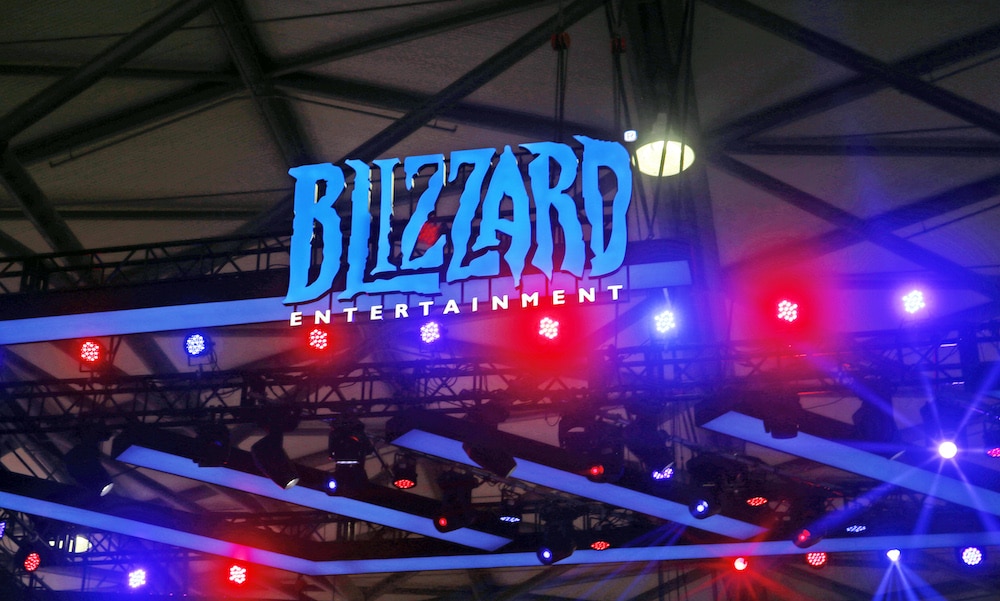Create a free profile to get unlimited access to exclusive videos, sweepstakes, and more!
So what does Microsoft's big Activision Blizzard buy actually mean for gamers?
Call of Duty, Warcraft, Crash Bandicoot & more are all part of the deal.

Microsoft plans to spend $68.7 billion to acquire Activision Blizzard, an enormous sum that appears even more staggering when compared with the comparatively slight $7.5 billion that it spent in 2020 to acquire Bethesda parent company ZeniMax Media.
It’s the kind of seismic business deal that gets tons of immediate ink from news outlets well outside the typical gaming press. As soon as the deal was reported on Jan. 18, everyone from Bloomberg to The Hollywood Reporter had something to say about the larger ripple effects, from how the deal affects Activision Blizzard’s recent #MeToo controversy to what it might mean for lucrative casual game markets dominated by mobile titles like Candy Crush (which is set to belong to Microsoft as part of the agreement).
But what about the big-name games that console and PC players care about? Which ones will Microsoft be getting? Will they follow the same path that huge Bethesda hits like The Elder Scrolls and Fallout appear to be destined for, becoming Xbox console exclusives that, for the first time ever, could lock out PlayStation players? Which games, in fact, are we even talking about here?
It’s too early to know Microsoft’s plans for each and every game franchise affected by the deal, and there’s simply no way to know whether owning an Xbox console will make or break players’ ability to play some of Activision Blizzard’s biggest cross-platform games in the future. But at least we know which games will be folded under the new Microsoft umbrella if the deal goes through…and that’s a pretty good place to start.
By far, Call of Duty is the biggest gaming name in the acquisition — and a significant reason why Microsoft’s willing to spend such an extraordinary sum on Activision. In all of gaming history, only Mario and Tetris have sold more games under their respective brands than Activision has as the publisher of Call of Duty and its large lineup of spinoffs, and there’s probably more certainty about the franchise future of CoD than of any other game brand under the new deal.
Microsoft’s Phil Spencer told Bloomberg this week that the idea behind acquiring big-name games that already have loyal fans on other platforms isn’t strictly to wall them off in the future as Xbox-only titles. Call of Duty and its offshoots are on just about every platform imaginable at this point, and would be especially tough to yank away from PlayStation — or, indeed, to restrict only to one hardware platform.
“I’ll just say to players out there who are playing Activision Blizzard games on Sony’s platform: It’s not our intent to pull communities away from that platform and we remain committed to that,” Spencer assured.
That same thinking could also apply to Blizzard’s stable of hugely popular games, from World of Warcraft to Overwatch to Diablo. WoW continues to be a PC-based title, but Overwatch and Diablo both have filtered onto Nintendo and Sony consoles over the years, where they still have plenty of old-school fans.
More speculative is what might happen to Activision game brands that have tons of legacy fans, despite lying (mostly) dormant in recent years. Microsoft is getting some pretty big ones in this deal, including the Tony Hawk's Pro Skater series, Guitar Hero (remember those days?) and Spyro the Dragon. Heck, even an old-school PlayStation mascot is joining the Microsoft fold: Activision’s Crash Bandicoot (which did get a pretty sweet modern-day, cross-platform sequel with 2020’s Crash Bandicoot 4: It’s About Time), is destined to become a Microsoft-controlled franchise.
For games like those; titles that evoke instant fan recognition even without a ton of recent new releases, Microsoft’s Xbox Game Pass and Xbox Cloud Gaming service might end up making for an ideal permanent home. Guitar Hero will always have fans even if Activision never publishes another new game in the series, and folding it into a broader subscription bundle; one that already gives players wide-open access to AAA titles like Halo Infinite and Bethesda’s upcoming Starfield, could only sweeten the incentive for subscribers to feel good about paying that monthly fee.
The deal will have to meet with U.S. regulatory approval — a process that could take until 2023 to complete — so there’s still a ways to go before Microsoft is likely to start talking specifics about any of the games it’s getting with its big Activision Blizzard buy. In the meantime, we’ll be watching to see if more big pickups are in store for Sony or Microsoft, as the trend toward content consolidation and big studio buyouts looks poised to continue.


























